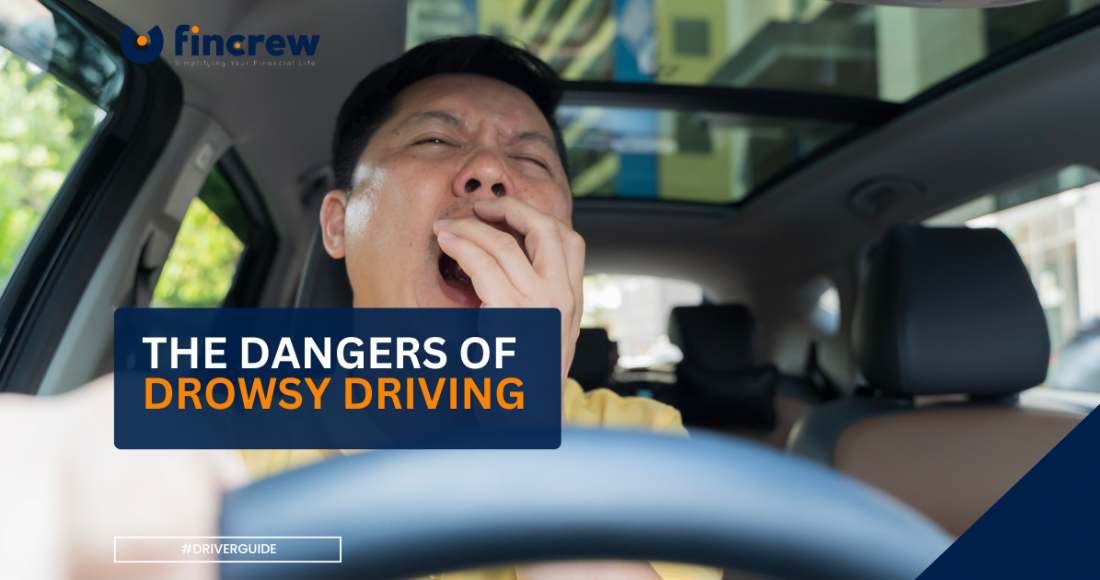Driving while asleep is known as drowsy driving, and anyone who gets behind the wheel can be affected by it. It’s no secret that drowsy driving dramatically increases the risk of accidents, leading to an alarming number of injuries and deaths every year.
Since sleep problems are common among drivers, greater awareness of drowsy driving can positively impact public health because it helps drivers avoid unnecessary dangers on the road.
He Was Driving While Drowsy. Why?
The risk of automotive accidents is significantly increased by drowsy driving. When a person microsleeps, they fall asleep for just a few seconds, and if this happens while driving, the car is likely to run off the road or collide with another vehicle. These crashes cause more damage when they occur at high speeds.
Even though a person may not fall asleep while driving, drowsy driving is still dangerous. It has been known that sleep deprivation is associated with a mental problem similar to drunkenness, with 24 hours of sleep deprivation equaling a blood alcohol content (BAC) of 0.10%.
The impairment makes a person less alert and more prone to distraction. It also slows their reaction time, which makes it more difficult to avoid hazards on the road. Insufficient sleep can also lead to increased risk-taking behind the wheel.
What Causes Drowsy Driving?
A variety of factors can cause drowsy driving:
- Sleep deprivation: Chronic sleep loss is a leading cause of excessive daytime sleepiness. It can lead to microsleeps and other unsafe driving behaviors. Most drivers do not receive the recommended amount of sleep each night.
- Sleep disorders: The lack of sleep caused by sleep disorders, like obstructive sleep apnea, can lead to daytime drowsiness. Many sleep disorders go undiagnosed and untreated.
- Alcohol: It has been shown that drinking alcohol can cause sleepiness and alter reaction time and decision-making, increasing the likelihood of auto accidents.
- Medication: A variety of drugs can cause sleepiness. Sleep aids, such as prescription drugs, over-the-counter medications, and dietary supplements, may cause drowsiness in the morning. Other medicines can also cause sleepiness.
Do You Know How To Avoid Drowsy Driving?
We can avoid this in several ways. Some tips can be helpful right before or during a trip, while others promote sleep habits.
Before Driving
- To limit driving hours, plan: As much as possible, divide your trip into segments and avoid driving for a long time.
- Avoid driving during the drowsiest part of the day: During midnight to six a.m. and early afternoon, your body’s internal clock usually makes you sleepier, so avoid driving during those times.
- You should budget time for rest: Make sure you allow time for a few rest stops along the way.
- A good night’s sleep: Get plenty of sleep the night before you drive. Ideally, this should occur multiple nights before your trip.
- Don’t drink alcohol or take other sedatives: These substances can affect your sleep quality and make you sleepy the next day.
- Traveling alone can cause drowsy driving, so if you can, invite someone along who can help keep you alert during driving.
While You’re Driving
- You should be aware of the signs and symptoms of drowsy driving. If you feel tired or show any signs of drowsy driving, find a safe place to stop and rest.
- Use caffeine: Caffeine is a stimulant that makes you more alert for a few hours, but it isn’t a cure-all. You’ll likely get sleepy again once the caffeine has worn off, and more caffeine might not be worth the effort.
- Choosing a distraction strategy to stay awake is not a wise choice: Some people try to keep themselves awake by playing with their window, air conditioner, or radio, but these distractions take your attention away from the road. Instead, let your body rest when it needs it.





